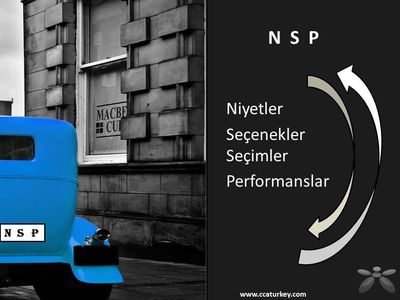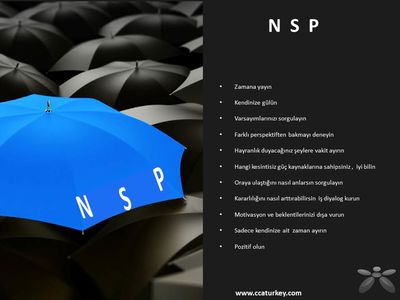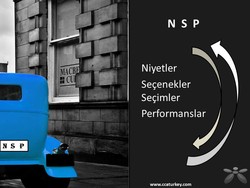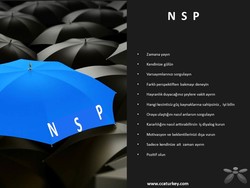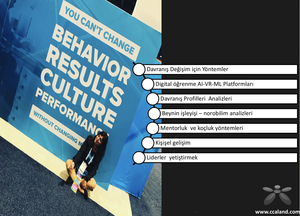- Ürün Özellikleri
- Yorumlar (0)
- Tavsiye Et
- Resimler
-
Think Twice About Meeting Your Mentor at Starbucks
Meeting with your Mentor:
Visit one of the more popular and well-known coffee shop chains during any workday and you’re likely to see business going on. Solo entrepreneurs and freelancers are deeply immersed in their mobile devices or PCs, looking settled in for the day at their “office.” One-on-one conversations are happening at other tables: networking, informational interviews, job interviews, meeting a colleague from another company to hatch a great new idea. Other coffee shop meetings look much more serendipitous: someone spots a friend or business associate and starts a conversation that lasts as long as the latte does. Then, off to the “real office” refreshed and invigorated.
These “off campus” locations are so popular with working Millennials and other business people that Microsoft Office 365 has an app that enables people to schedule meetings at Starbucks via Outlook! Such venues do provide an informal, casual atmosphere that can help set the scene for developing and strengthening the personal relationships that reinforce business relationships.
But it’s just that informal, casual atmosphere that limits the usefulness of these venues for internal mentor and mentee conversations (internal meaning that both mentor and mentee belong to the same organization).
Mentoring is first and foremost a business activity, and the relationship between a mentee and mentor is a professional one. The mentor is a unique resource for the mentee’s successful onboarding and subsequent professional development and advancement within the company. With respect to development of the mentee’s career, the mentor maintains an ongoing and performance-oriented awareness of the mentee’s skills, style, contributions, strengths, and preferences over time and uses this awareness for advice, coaching, or redirection. With respect to the mentee’s career advancement, the mentor can be the first to spot potential opportunities, as well as provide sponsorship of the mentee for those opportunities.
Most if not all of these internal mentee/mentor activities and interactions may be best carried out within the workplace (in an office, conference room, and so forth)—ideally as part of established company business practices. For the mentee, internal mentee/mentor communication can help produce the most desirable outcomes of mentoring.
Moreover, workplace-based conversations can enhance that communication in the following ways:
- Improved timeliness: Said another way: “Catch someone doing something right—and tell them right now!” If you’ve made a valuable contribution to a sales meeting, marketing presentation, research project, wouldn’t you like to know it? It’s satisfying and motivating to hear your mentor say, “You did a good job,” followed by some specific comments on what was good. Simple, straightforward communication like that can happen in the hallway or inside/outside the conference room. No need to wait to schedule time at a coffee shop!
- Greater frequency: Closely associated with improved timeliness is frequency of feedback. How often would you want to schedule a meeting at an offsite location? Once per week? Once per month? In contrast, onsite feedback could easily happen multiple times per week, without the logistic complications of getting to and from an offsite location.
- Better quality: Outside, informal venues, where you’re watching the clock to be sure you get back to the office for the next work obligation, aren’t conducive to back-and-forth discussion. A monologue from a time-pressed mentor may not lead to a shared understanding of the issues you wanted to discuss in more depth. A quality conversation needs focused time and attention from both parties. If you need or want that, seek to schedule a meeting in the office.
- Favorable management and peer perceptions: The unwritten (and sometimes unexpressed) rule is that the purpose of offsite meetings—no matter how ostensible the business intent—is to promote and develop personal relationships. If a mentor and mentee are viewed as being more friends than professional colleagues, management, and peers may view the mentor as being unable to remain objective while delivering feedback. In contrast, mentee/mentor professional relationships developed and exercised within the formalities of the workplace are less likely to trigger such perceptions and, instead, result in favorable management and peer perceptions.
So, when might you consider an offsite venue for an internal mentee/mentor conversation? When you’ve accomplished a significant goal, objective, milestone, or achievement. Head to the nearest, nicest, most congenial coffee shop for lattes all around! Alıntı: ATD , NOV 2017
- Improved timeliness: Said another way: “Catch someone doing something right—and tell them right now!” If you’ve made a valuable contribution to a sales meeting, marketing presentation, research project, wouldn’t you like to know it? It’s satisfying and motivating to hear your mentor say, “You did a good job,” followed by some specific comments on what was good. Simple, straightforward communication like that can happen in the hallway or inside/outside the conference room. No need to wait to schedule time at a coffee shop!


